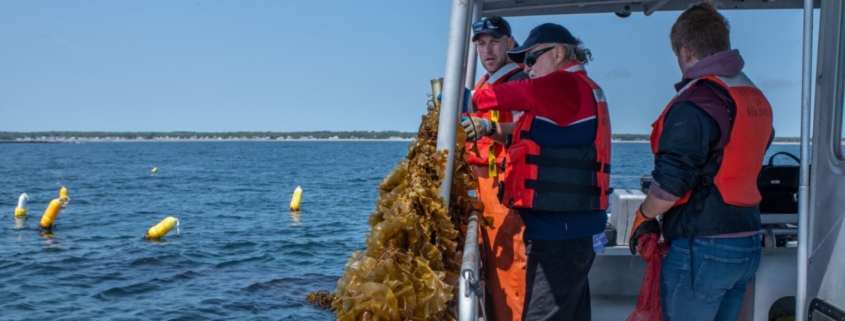Restorative Aquaculture has Positive Impacts on Marine Life
Comprehensive global study confirms restorative aquaculture has positive impacts on marine life
PRESS HERALD
The University of New England partnered with The Nature Conservancy, the world’s leading conservation organization, on a ground-breaking new study that provides strong evidence that shellfish and seaweed farming are a critical component of regenerative food production.
The comprehensive study has been published in Reviews in Aquaculture at a time when much news of food production focuses on its negative impacts on the environment. Quite to the contrary, the study, titled “Habitat value of bivalve shellfish and seaweed aquaculture for fish and invertebrates: Pathways, synthesis, and next steps,” paints a bright picture of aquaculture’s potential to help satisfy food demand in harmony with ocean health.
Restorative shellfish and seaweed farming offers a sustainable method to meet the nutritional needs of the growing human population, while maintaining and improving the health of the waters, lands, and animals we live alongside. This study is among the first to demonstrate the global potential for regenerative outcomes in aquaculture systems.



